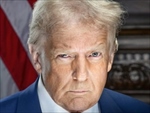#immigration
Immigration: The Journey That Shapes Nations
#immigration
Immigration: The Journey That Shapes Nations
Politics and immigration are deeply intertwined, shaping national policies, economic growth, and social dynamics. Immigration is often a contentious issue in political discourse, with debates cantered around how to balance national security, economic needs, and humanitarian responsibilities. Some political factions emphasize the need for stricter immigration laws to protect jobs and resources, while others argue for more inclusive policies, viewing immigration as a source of cultural enrichment and economic vitality. The political landscape surrounding immigration is complex, as it involves not only legal and economic considerations but also moral and ethical questions about human rights and the treatment of migrants. These discussions reflect broader ideological divides, making immigration a focal point in elections, policy-making, and international relations.
Haitian Man Sponsored by Missouri Pastor Ordered to Leave US Under Trump Immigration Policy
- Tuesday, 01 April 2025

A Haitian man named Wendys Desrivieres, sponsored by Missouri pastor Ralph Morris and part of his family, was ordered to leave the US within 30 days due to changes in immigration policy under Trump administration. Originally granted a two-year stay through a parole program, the Department of Homeland Security terminated certain programs for nationals from Cuba, Haiti, Nicaragua, and Venezuela, leaving Desrivieres with until April 24 to depart.
Starmer Slams 'Gesture Politics' as Labour Pledges to Scrap Rwanda Plan
- Friday, 10 May 2024
On 10 May 2024, Keir Starmer announced in Dover that a Labour government would scrap the Conservatives’ Rwanda deportation scheme and replace it with a new Border Security Command. Joined by local MP Natalie Elphicke, who had just defected from the Conservatives to Labour, Starmer criticised the Rwanda plan as “gesture politics”—a costly and ineffective stunt that failed to deter illegal immigration. He pledged to redirect the £75 million allocated to the scheme into a specialised unit focused on intelligence-led enforcement and tackling people-smuggling gangs. Starmer argued that the public was tired of political gimmicks and wanted practical, serious solutions. His speech marked a shift in Labour’s immigration policy, prioritising effective border control over symbolic measures. Elphicke’s defection underscored growing discontent within the Conservative ranks and added political weight to Labour’s stance. The announcement positioned Labour as focused on enforcement and results, rather than headline-grabbing but unworkable policies.




















